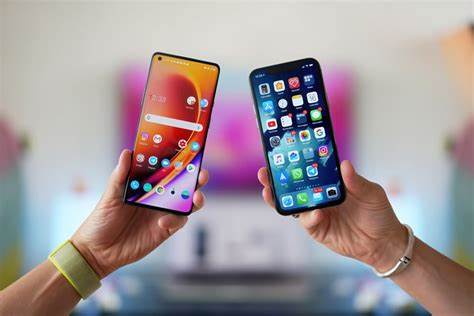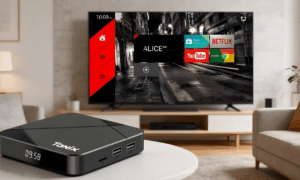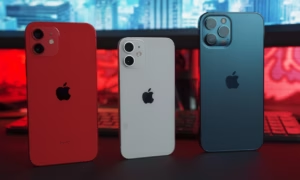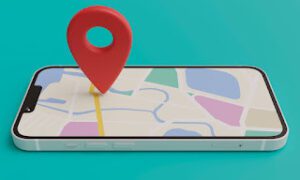Regarding mobile devices, the two most essential contenders are undoubtedly Apple’s iPhone and Google’s Android. Each of these operating systems has unique advantages and disadvantages, making them appealing to different audiences for various reasons.
Whether you need an easy-to-use streamlined system for video calls or if battery life is your biggest priority, there needs to be a correct answer when choosing between iOS and Androids; instead, understanding both systems is vital. In this article, we dive deep into how they compare so you can decide which one fits your needs best.
iPhone vs. Android – the basics
The age-old debate between iPhone and Android has been raging for years, yet there are still no signs of resolution. With both Apple and Google pushing out stellar updates to their products each year, it’s no surprise that the two camps remain fiercely divided. The decision to go for an iPhone or an Android device comes down to several key differences and preferences.
For example, you want an extensive collection of apps. In that case, Android is the preferred option – with billions of users and a virtually limitless selection, anything you could want can be found with just a few clicks on the App Store. On the other hand, Apple’s iPhone 14 signature user experience is universally renowned as being second to none. It comes not only from the hardware design but also from its superior security features, which include end-to-end encryption.
Finally, personal preference is another factor in this iPhone vs. Android equation. Some people prefer iPhones because they’re understatedly stylish, while others opt for Androids because they have more customization options and flexibility than iOS devices. Ultimately it all boils down to what works best for you, but let’s face it – whichever side you choose won’t disappoint you.
How do they compare in terms of price and features?
Regarding pricing, iPhones are slightly more expensive than Android devices. It is primarily due to Apple’s higher quality design and materials used in their products and their commitment to providing the latest technology advancements. Despite this, many Android phones come with equal or more significant features for less money – depending on which device you choose.
In terms of features, both platforms have many impressive capabilities to offer. With iOS devices, users can take advantage of an incredibly intuitive user interface, seamless integration with other Apple products, and access to the App Store, which is home to thousands of apps and games. Android phones also have an extensive selection of apps, plus customizability options like widgets and the ability to add more RAM or storage.
In general, both systems offer a wealth of features that can make choosing one difficult. However, by understanding your needs and researching the different devices available on each platform, you’ll be able to pick out the perfect mobile device for your lifestyle.
Which one is better for you, based on your needs and preferences?
Understanding your needs and preferences is the most crucial factor in deciding whether an iPhone or Android device suits you. It’s essential to consider the most critical features, such as battery life, camera quality, and storage capacity. Additionally, you should also consider your budget and if you want access to certain apps or games that may only be available on one platform.
Once you’ve identified the key features that will drive your decision, it’s time to research and compare the different options to pick the best device for you. While Android and iOS are excellent operating systems, whichever you choose should depend on what works best for your lifestyle.
What are some of the pros and cons of each phone system?
When considering the pros and cons of iPhone vs. Android, it’s essential to remember that both platforms have their own strengths and weaknesses.
When it comes to Apple iPhones, one of the most significant benefits is its user-friendly design which offers an intuitive experience for users. Additionally, iPhones offer access to a vast selection of apps and games in the App Store and superior security features like end-to-end encryption. On the other hand, iPhones tend to be more expensive than Android devices and can have limited customization options compared to their Android counterparts.
Android phones offer users an array of customizability and flexibility which is often lacking in Apple products. They feature a wide range of apps and games, plus hardware options like expandable storage and removable battery. However, Android devices can sometimes load longer than iPhones and may be prone to security risks due to the open-source software used on many models.
Conclusion
When it comes to choosing between an iPhone and an Android device, there is no clear-cut answer. Both systems offer a wealth of features that appeal to different users, so ultimately, the decision should come down to which one better fits your lifestyle and needs. By understanding what you want from a phone system, considering factors like budget and preferences, and researching the options available, you’ll be able to make an informed decision and pick out the perfect mobile device for you.



































